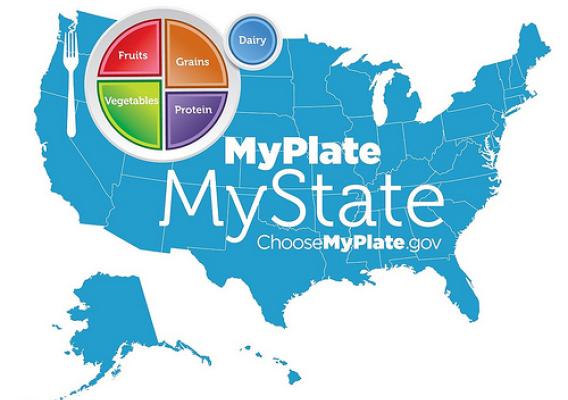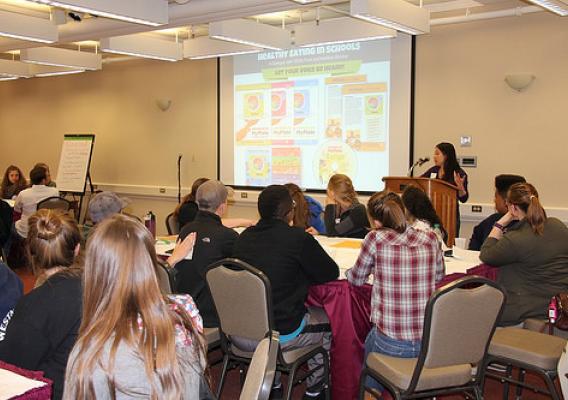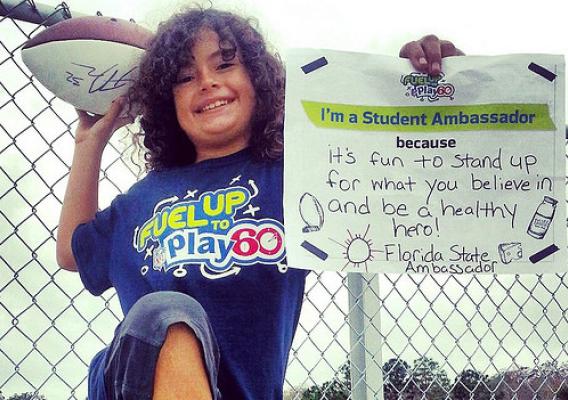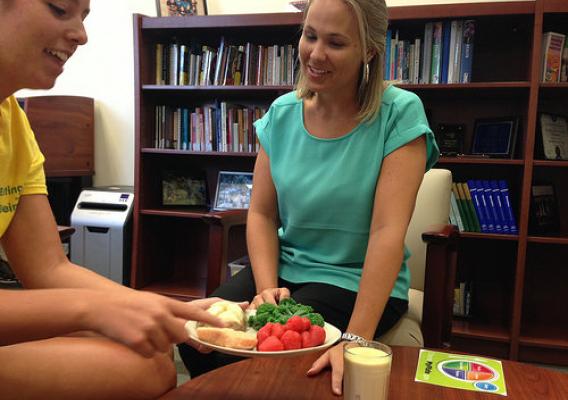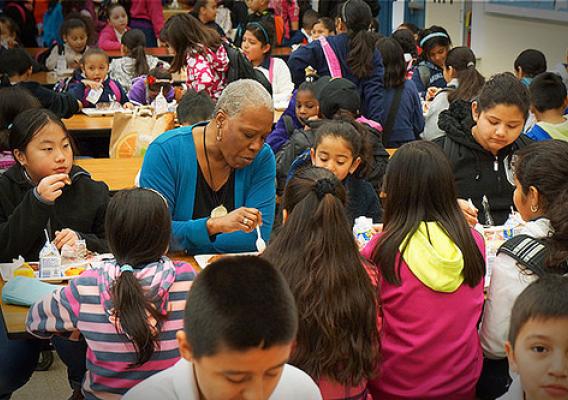As a registered dietitian, I’m a big proponent of nutrition education for kids and adults alike. MyPlate On Campus, USDA’s initiative that promotes healthy eating on college campuses through peer-to-peer education, is a unique effort to reach young adults during a key life stage. The program now boasts over 2,300 MyPlate On Campus Ambassadors who inspire and promote healthy food habits at universities and colleges nationwide. Read below about how one North Carolina campus brings MyPlate to life for their students:
Guest post by Courtney Simmons, MS, RDN, CSSD, LDN, Campus Dietitian, and Jessica Jones, Peer Educator, Health Promotion, University of North Carolina Wilmington
College – a time of transition, not only in an academic sense, but also in a personal “taking charge of your own health” sense. Most first year students are thinking about all the choices they get to make without guardian oversight, including their food choices! They can now choose what and when to eat and drink for themselves. Mom and Dad are no longer telling them to “stop with the junk food,” “clean the plate,” or “eat their veggies”. Although this seems like the ultimate dream come true and the bells of freedom are ringing, students without the knowledge and skills to make healthy food choices may not be getting all the nutrients their bodies need to stay healthy!


